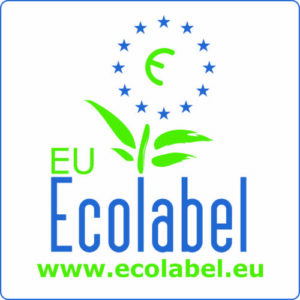Legislation updates
FEPE is the voice of the industries it represents, at EU level.
- We keep our members informed about changes affecting them.
- We support networking and competition between our member companies.
- We communicate our members’ opinions to the relevant EU institutions in Brussels.
- We advocate on behalf of our members in the face of changing business practices and legislation.
Our goal is to ensure that the legislation is in the best interests of all our stakeholders, from our members to the public.
Areas of interest
Topics of concern to our members include any legislation impacting the envelope, light packaging and mail/distribution sector. This includes but is not limited to:
- digitalisation and e-invoicing
- data protection
- postal affairs
- citizen/consumer rights
- environmental affairs.
Some of the issues we follow and are active in are described below.

Environmental affairs legislation
FEPE is interested in any environmental-related legislation that may affect our members and stakeholders. One example is the EU Ecolabel.
The EU Ecolabel was established nearly 30 years ago. It has included specific criteria for “converted paper products”, including envelopes, since 2014. The EU Ecolabel works in accordance with the ISO standard 14024 and is therefore a Type I label, one of the most reliable ways to communicate environmental information to consumers.
For more information, see the European Commission’s EU Ecolabel website or contact the FEPE Secretariat.
See also: Sustainability

Data protection legislation
EU data protection rules – notably the EU General Data Protection Regulation (GDPR) – guarantee the protection of your personal data whenever they are collected.
GDPR protects citizens because the requirements for collecting, storing and using data are now much stricter. Companies and organisations are more restricted in how they can use data for business purposes. GDPR affects both online and physical, direct mail communication.
FEPE supports the view that personal privacy is of paramount importance and a basic right for all European citizens.
However, it’s also important to enable consumers to get easy access to marketing messages of interest to them. And to enable companies and organisations to use data for legitimate business purposes.
Data protection issues are of particular interest to FEPE members involved in producing materials for direct marketing.
We therefore advocate for a balanced approach to data protection legislation to ensure that:
- consumers’ personal data are protected, and
- consumers get access to a wide range of marketing materials, enabling them to choose, and
- businesses are able to inform customers of opportunities available to them, and
- businesses can establish and maintain a long-term relationship with their customers.

Information access legislation
The world is becoming more digitalised. This transition brings all of us many new opportunities. However, not everyone has equal access to these opportunities. For some people, the digital world is not yet fully accessible. For others, it is not affordable. Others do not have the skills to participate fully – some people can learn those skills, some cannot.
Digital inclusion is an EU-wide effort to ensure that everybody can contribute to and benefit from the digital world. It is largely focused on accessibility and social inclusion to make internet more accessible to the greatest number of people. Because all EU citizens have a right to “full participation in society, on an equal basis with others.”*
* EU, Union of Equality: Strategy for the Rights of Persons with Disabilities 2021-2030
Realistically however, people in very remote communities, marginalised individuals and communities, and people with disabilities are unlikely to benefit from digital inclusion efforts for a long time to come.
Again, FEPE advocates for a balanced approach to information access legislation to ensure that:
- digital inclusion helps to provide access to the digital world to the greatest number of people, and
- citizens retain the right to choose to access information by non-digital means, on an equal basis with people who choose digital access.
It will take considerable time and investment before everyone has equal access to internet communication. In the meantime, there are many people who need continued access to non-digital communication, including the right to receive information (e.g. bills, private or confidential communication, etc.) by post, and widespread, reliable postal services.
Read more about our activities related to Paper-based communication.
